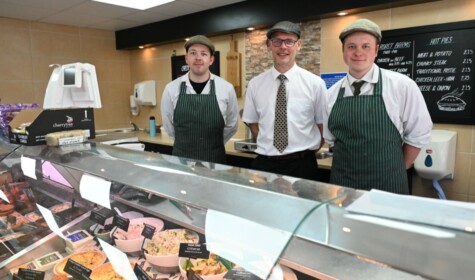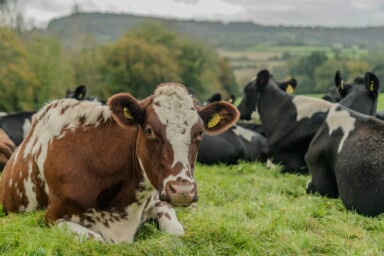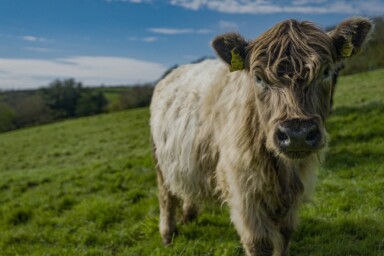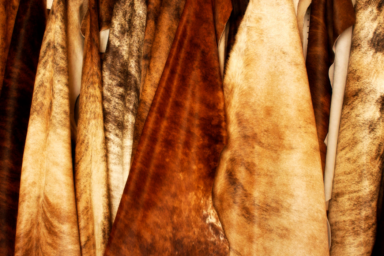In our series of butcher profiles, food and farming writer, Marianne Landzettel, meets butchers from across the UK who have built their business around high welfare, sustainably produced meat. David Gigli has made his shop a destination – it’s a butcher’s with a bistro serving breakfast and lunch (and occasionally dinner), where you can hear a talk on how to barbecue or take course on butchery, putting ‘diversification’ centre stage.
A perfectly cooked, deep green stem of purple sprouting broccoli tops the Golden Cleaver award winning ox cheek on mash. The barista style espresso machine gleams behind the counter. A doorway in the open brick wall allows customers a glimpse into the adjacent butcher’s shop with its polished white tiles, and a simple but elegant backlit sign tells you where you are: this is Gigli’s, a butcher’s, bistro and coffeeshop in Lytham St Annes, just south of Blackpool.













